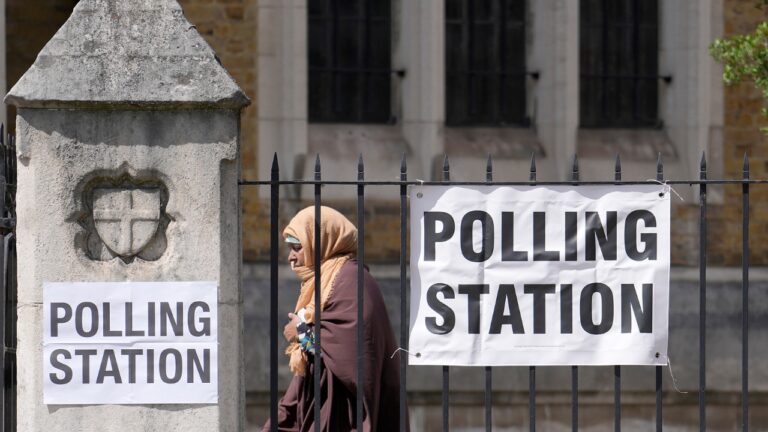Key highlights
- Exit polls for the 2024 UK general election will be published at 10pm BST on 4 July.
- Keir Starmer’s Labour Party is expected to win
- A YouGov poll predicts Labour will win 431 seats, while other polls predict it will win around 430-444 seats.
The 2024 general election is underway in the UK, with around 46 million voters eligible to vote in the first round in July. election It’s the first election in 79 years. There will be 40,000 polling stations, including schools, churches, laundromats and crematoriums. Voting will take place between 7am and 10pm BST.
2024 Exit Poll England The general election result will be announced shortly after the polls close at 10pm BST. Exit polls were commissioned by the UK’s three major broadcasters: BBC, Sky News and ITV. Poll data is collected by marketing research company Ipsos and analysed by a team of exit poll experts from a secret bunker in central London.
A total of 650 MPs will be elected to the House of Commons when results begin rolling in on Friday morning. 326 is the majority needed to form the next government in the UK.
Who is leading the UK opinion polls?
Polls show that Keir Starmer’s centre-left Labour Party is widely expected to oust Rishi Sunak’s Conservative Party, which has been in power in the country since 2010. A YouGov MRP poll predicts Labour will win 431 seats, an increase of 229 seats from 2019. Another poll by More in Common, released on 3 July, predicted Labour would win 430 seats, while a FocalData poll, also released on 3 July, predicted the Whigs would win 444 seats.
Key Issues UK Elections
The Ipsos Issues Index for June 2024 shows that Brits’ biggest concerns are primarily centred around healthcare, the economy and immigration. The National Health Service (NHS) and healthcare topped the list, with 41% of respondents identifying this as an important issue, up 6% from May.
The economy was the second most pressing concern, mentioned by 33% of respondents, up 5 percentage points. Immigration and emigration followed, with 30% of respondents up 3 percentage points. Inflation and rising prices were also important, cited by 29% of respondents, a concern unchanged since May.
Other notable issues include housing (17%, up 2%), education and schools (16%, up 4%), defence, foreign affairs and international terrorism (12%, up 3%). Additionally, concerns about poverty and inequality (12%, up 2%), lack of trust in politics and government (12%, unchanged) and crime, law and order (10%, down 2%) are also widespread among Brits.

